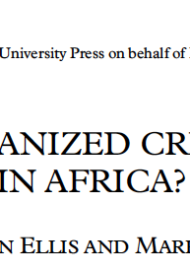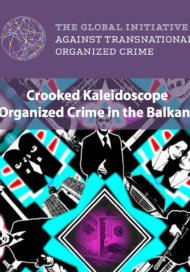Posted on 24 Oct 2016
The Democratic Republic of Congo is not a failed state—for everyone. It is a failure for the vast majority of Congolese who suffer from abysmal security, health care, and education services. However, it is an efficient state for ruling elites and their commercial partners who seek to extract or traffic resources at the expense of Congo’s development.
Over the past 130 years, Congo has had many elements of violent kleptocracy, a system of state capture in which ruling networks and commercial partners hijack governing institutions and maintain impunity for the purpose of resource extraction and for the security of the regime. Ruling networks utilize varying levels of violence to maintain power and repress dissenting voices. This system plays out today with the current regime’s attempt to subvert a democratic transition. President Joseph Kabila and his associates profit from grand corruption and are trying by all means necessary to hold on to power. From King Leopold II over a century ago to Kabila today, Congo’s leaders have redirected billions of dollars from the Congolese state and people, and have used brutal violence at times to gain or maintain the ultimate prize: control of the state and its vast natural resource base. During Kabila’s tenure, up to $4 billion per year has gone missing or been stolen due to the manipulation of mining contracts, budgets, and state assets. This follows trends set by King Leopold, the Belgian colonial authorities, Mobutu Sese Seko, and Kabila’s father who preceded him as president before his assassination. These regimes have partnered with commercial actors to rob Congolese people of their valuable natural resource assets. These leaders’ international partners have also profited significantly, some of whom reportedly have paid large bribes to do so. For example, in a recent U.S. Department of Justice plea agreement, the U.S. hedge fund Och-Ziff asserted that some of its business partners, including Israeli businessman Dan Gertler according to sources familiar with the case, paid over $100 million in bribes to Congolese officials in order to receive billions of dollars worth of mineral concessions at very low prices.
Violence has been the systemic companion of these regimes. It is estimated that 5.4 million people have died and hundreds of thousands have been subjected to sexual violence in conflict during the rule of Joseph Kabila and that of his father, Laurent Kabila, with the active participation neighboring states in the killing and looting inside Congo, particularly Rwanda and Uganda. This is in addition to structural violence and repression.
Based on field and historical research, this study argues that President Kabila and his close associates rely in large part on theft, violence, and impunity to stay in power at the expense of the country’s development. From the days of Leopold to the present, top officials in Congo and their associates have created seven “pillars” of violent kleptocracy.



